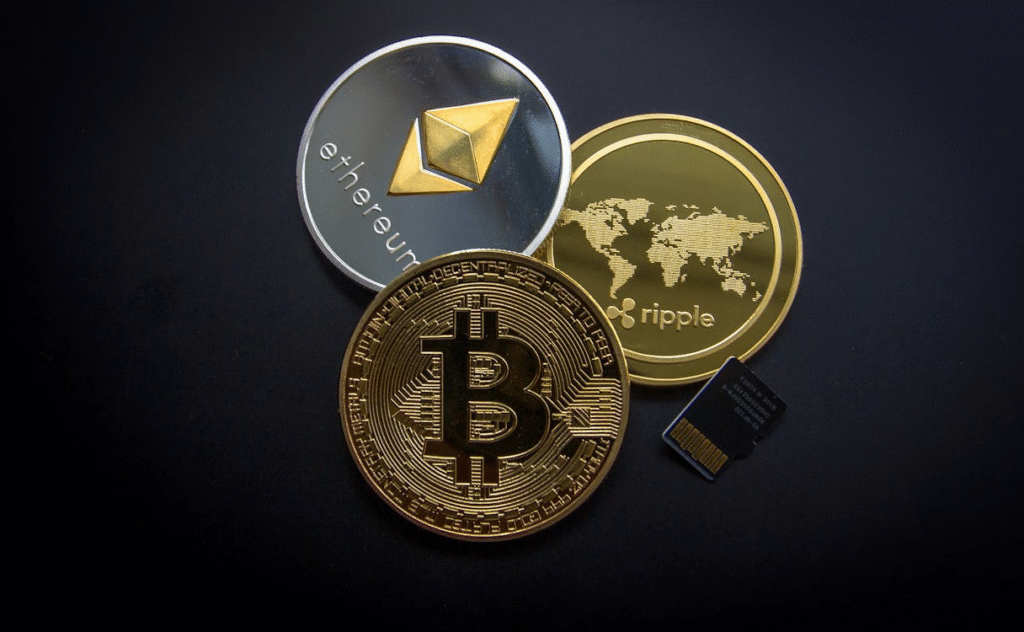

There was a time when the word “crypto” only belonged in the vocabulary of traders, programmers and late-night Reddit threads. That time is gone. Digital currencies have crept into music festivals, e-sports tournaments, film releases and virtual worlds. Somewhere along the way, they stopped being just an investment and became part of the entertainment business.
This isn’t a neat story. It’s messy, experimental and still half-written. Every new app, game or platform has to navigate a rulebook that barely exists. Yet the appeal keeps growing because for many creators and players, the blockchain doesn’t just move money. It moves trust.
The Rules Are Still Being Written
Governments are racing to catch up. Europe is drafting frameworks that aim to define what a digital asset is and how it can be used. In the United States, regulators can’t agree on whether tokens behave more like securities or commodities. Across Asia, a few countries are testing flexible “sandbox” models, where innovation can happen without breaking too many laws at once.
And then there are the emerging markets, such as Latin America, Africa, and Southeast Asia, where people use digital currencies not as experiments but as practical tools. When your banking system fails you, a decentralised one starts to look a lot more reliable.
Each approach says something about priorities. Europe wants order. The US wants protection. Asia wants progress. The rest of the world just wants access. Entertainment, as usual, is caught right in the middle.
Where Fun Meets Finance
Entertainment has always flirted with money: think casino floors, sports betting, and prize shows. The difference now is that blockchain brings accountability into the mix. Every bet, spin, or token transfer can be recorded, verified and traced.
That’s not a buzzkill; it’s liberation. The idea of “provable fairness” turns what was once a blind transaction into something transparent. In a crypto casino, every outcome can be mathematically checked, and every payout logged in public view. No smoke, no mirrors, just code.
It’s an idea spreading fast beyond gambling. Game developers are experimenting with in-game economies where players can see exactly how reward systems work. Music platforms are building smart contracts that split royalties automatically. Even film crowdfunding projects are using blockchain to prove where every contribution goes.
What ties all this together isn’t greed. It’s transparency, which is the new currency of digital trust.
The Human Factor
Technology can fix a lot, but people are still unpredictable. The most advanced cryptographic system can’t stop someone making reckless choices or clicking the wrong link. That’s why regulators insist that crypto-enabled entertainment needs human rules as well as digital ones.
A few common-sense measures are becoming standard:
- Platforms now run identity checks before high-value transactions.
- Games with monetary elements publish clear odds and payout data.
- Audits happen more often, not because regulators demand it, but because users expect it.
It’s a quiet cultural shift. For years, people accepted opacity as part of online play. Now, audiences are getting used to seeing receipts; literal proof that what they experienced was fair.
A Tale of Two Industries
Financial markets value caution. Entertainment values risk. Put them together and you get a fascinating tension, one side pulling towards security, the other towards spectacle.
That tension has created some odd but promising hybrids. In Singapore, regulators have approved pilot schemes for blockchain-based games that behave like financial products. In Europe, start-ups are experimenting with tokenised ticketing that turns fans into shareholders.
What’s consistent is that none of these projects can avoid the paperwork. The days of operating in the shadows are over. If a company moves digital money, even for fun, it’s subject to scrutiny. But that scrutiny brings legitimacy, and legitimacy attracts bigger audiences.
When Entertainment Gets Political
There’s another layer few talk about: geopolitics. Digital currencies don’t respect borders, and that makes some governments nervous. Sanctions, currency controls, and data laws all start to matter once entertainment platforms become financial platforms too.
Imagine a global gaming app where players in ten different countries wager tokens on the same event. The winnings cross three currencies, four tax systems, and a dozen regulators. It’s chaos, but also a glimpse of the connected future everyone keeps predicting.
So far, most governments are choosing cooperation over confrontation. There’s growing consensus that banning crypto outright doesn’t work. Instead, the goal is to build frameworks that keep money flowing safely while preventing abuse.
What Players Actually Want
Players don’t wake up thinking about compliance frameworks. They care about experience; speed, fairness, and connection. The average gamer or viewer doesn’t want to decode hashes or read white papers. They want to know: if I win, do I really get paid?
That’s why blockchain transparency is catching on so fast in entertainment. It offers answers you can check yourself.
But convenience still matters. The best systems are invisible ones, the kind that work flawlessly in the background. The platforms that thrive will be those that make crypto feel effortless, not technical.
The Trust Economy
Strip away the jargon and this whole story comes down to one word: trust.
Money is built on it. So is entertainment.
People trust games to be fair, musicians to deliver what they promise, and platforms to handle data responsibly. Digital currency strengthens that trust by turning it into something measurable. You can see proof that a payout happened. You can check where funds moved. You can confirm the rules before you play.
A Moment of Honesty
None of this is simple. The crypto world still has its scams and collapses. For every innovation that makes headlines, another quietly fails. Some projects overpromise, others misunderstand what audiences actually want.
And yet, if you look past the noise, progress is steady. Regulators are learning to distinguish between speculation and innovation. Creators are building smarter systems. Audiences are getting savvier. The chaos is slowly giving way to structure.
Entertainment, with its mix of imagination and immediate feedback, might be the perfect laboratory for this evolution. It’s where risk and reward are part of the fun.
What Comes Next?
If current trends hold, the future won’t be about crypto replacing traditional entertainment. It’ll be about both worlds blending. You’ll have blockchain under the hood, not on the label. Tokens will power reward systems quietly. Audits will happen automatically.
The technology will fade into the background; the same way streaming made us forget about DVDs, or mobile banking made cash feel slow.
As more governments finalise digital-asset policies, clarity will replace confusion. Platforms that built compliance early will benefit most; they’ll already have the trust others are racing to earn.
For players and creators alike, that clarity could be a turning point. Once the fear of the unknown fades, the possibilities open wide.
Beyond the Buzzwords
Talk to anyone in the entertainment industry, and you’ll hear the same concern: audiences are harder to impress. They want new experiences, but not gimmicks. They want transparency, but not complexity.
That’s why blockchain in entertainment isn’t about shouting “crypto” louder, it’s about using the technology quietly, to make things smoother and fairer without stealing the spotlight.
In a way, the industry is rediscovering something it lost in the digital rush: accountability. When players, fans and creators all share visibility over the systems that power their fun, it changes the tone.
The story stops being about risk and starts being about participation.
Digital Currencies are Changing the Game
Digital currencies are forcing every industry to ask harder questions about value, not just what something costs, but what it’s worth to trust it. Entertainment is no exception.
The evolution won’t be tidy, and it won’t please everyone. But the direction is clear. We’re heading towards an era where fun and finance coexist on transparent ground, where players see their odds and creators see their impact.
That might sound technical, but it’s deeply human. Because what people want, whether in a marketplace or a game, is the same thing they’ve always wanted: to know the system is fair, and that they’re part of something real.

Leave a Reply